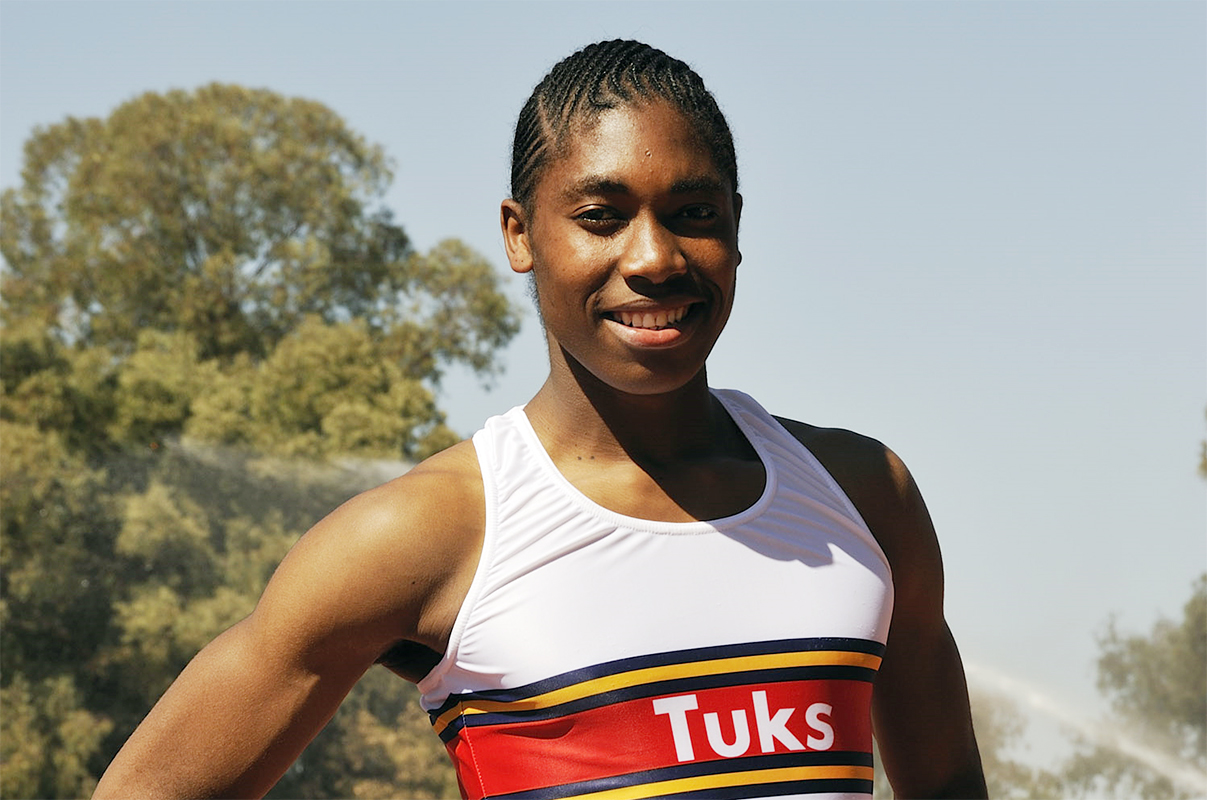The Centre for Human Rights, Faculty of Law, University of Pretoria notes with disappointment the decision by the Swiss Federal Supreme Court to effectively ban Caster Semenya from participating in certain competitive sporting events (400m to the mile) unless she reduces her testosterone levels to ‘acceptable female’ levels. This decision follows an appeal by Caster to the Supreme Court against a decision by the Court of Arbitration for Sports (CAS), which upheld the validity of the World Athletics regulations on female athletes with differences of sex development (Eligibility Regulations on Female Classification (Athlete with Differences of Sexual Development). The CAS, based in Lausanne, Switzerland, is a private legal person under Swiss law. Its arbitration awards are subject to the appellate jurisdiction of the Swiss Federal Supreme Court.
The inescapable impression is that these Regulations specifically earmark Caster Semenya. It should be noted that the Regulations apply to a limited category of athletes, those participating in the 400m, 400m hurdles, 800m, 1500m and mile events. The Regulations also apply only to athletes with ’46, XY DSD’, which is a difference in sex development described as a condition in which an individual has one X and one Y chromosome in each cell, but has external female genitalia. Caster Semenya is the reigning Olympic Champion in the 800m event and falls in the category of ’46, XY DSD’.
The decision means that Caster is deprived of the opportunity to defend her 800m title at the next Olympic Games. While Caster has the right to refuse treatment to lower her testosterone levels, if she wants to participate in any of these events, she has no choice but to expose herself to invasive and potentially dangerous medical hormone reduction procedures.
Imbalance in the Swiss Court’s decision
In arriving at its decision, the Supreme Court emphasised fair competition in sports. ‘Fair play’ or fairness in sport is a legitimate concern and forms a central principle of sporting competition. It is one of the pillars on which competition is based. The Swiss Supreme Court made much of the importance attached by the European Court of Human Rights to fair competition. In this regard, it refers to, in which the European Court finds no violation of the right to private and family. However, the context of the decision is distinctly different. This case concerns the requirement of some sports professionals to notify their whereabouts every day of the year so that unannounced anti-doping tests can take place. In Semenya’s case, the form of interference with privacy is at a much more intimately personal level.
The Swiss Supreme Court did not give sufficient weight to Caster Semenya’s right to human dignity. It agreed with the CAS – based primarily on the prominence it attaches to the principle of fair competition -- that the Regulations were necessary and proportionate to the extent of negatively affecting principles of human dignity. It concluded that, while the necessary drug-related lowering of the testosterone level represented a considerable interference with physical integrity, this was necessary and did not infringe on Caster’s right to human dignity.
Judicial option
Although it appears that Caster has now shifted her focus to the 200m, there still are legal options open to challenge the CAS decision. One is judicial in nature: Her case is ripe to go to the European Court of Human Rights. There is a likelihood that this Court may reach a different decision. Caster’s human rights are protected under the European Convention, of Human Rights particularly her freedom not to be subjected to torture, inhumane or degrading treatment, freedom from non-discrimination and the right to privacy. Switzerland, including its courts, fall under the jurisdiction of the European Convention. In deciding the Caster Semenya case, the European Court is likely to recognise the relevance of its “private life”-jurisprudence, and could take a strong position against discrimination based on gender stereotyping. However, it should be taken into account that the European Court has under similar circumstances frequently invoked the “margin of appreciation”. Under this doctrine, the European Court defers to the judgment of national institutions (including courts), especially when there is a lack of “European consensus” on the substantive issue under consideration. There is thus no guarantee of success.
Quasi-judicial options
Another route is quasi-judicial in nature: attempting to secure a finding by a United Nations (UN) human rights treaty body in respect of an individual communication, making the case that Switzerland has violated the relevant UN human rights treaty. A possible example id a case to the UN Committee on Economic, Social and Cultural Rights. However, these findings are not binding, and the process is quite protracted. The matter can also be taken up again by a United Nations Special Rapporteur. The UN’s human rights special mechanisms, established under the UN Charter, report to the Human Rights Council. In September 2018, three of these mandate holders, the Special Rapporteur on the right of everyone to the enjoyment of the highest attainable standard of physical and mental health; the Special Rapporteur on torture and other cruel, inhuman or degrading treatment or punishment; and the Working Group on the issue of discrimination against women in law and in practice have written an open letter to the IAAF, condemning the IAAF Regulations for violating the right to equality and non-discrimination, the right to the highest attainable standard of physical and mental health, the right to physical and bodily integrity and the right to freedom from torture, and other cruel, inhuman or degrading treatment and harmful practices.
Diplomatic and political pressure
Any of these options should go hand in hand with diplomatic-political measures, such as a further resolution of the UN Human Rights Council. The South African government could take up the issue again in the Human Rights Council. On the eve of the CAS delivering its decision, in March 2019, the Human Rights Council adopted a resolution, titled “Elimination of discrimination against women and girls in sport”, in which it called on all UN member states to “ensure that sporting associations and bodies implement policies and practices in accordance with international human rights norms and standards, and refrain from developing and enforcing policies and practices that force, coerce or otherwise pressure women and girl athletes into undergoing unnecessary, humiliating and harmful medical procedures in order to participate in women’s events in competitive sports, and to repeal rules, policies and practices that negate their rights to bodily integrity and autonomy”. (Resolution 40/5, 21 March 2019).
Conclusion
The Centre’s view is that neither the CAS nor the Swiss Supreme Court has made out justification for subjecting hyper-androgenic female athletes to unwanted and non-consensual hormonal treatment (with the possibility of side effects), in order to reduce the testosterone levels to ‘acceptable female levels’. In our view, the infringement on their right to human right to dignity, bodily autonomy and physical integrity is not necessitated by the argument for competitiveness. The decision is a set-back as it comes at a time when there is increased knowledge and greater understanding of intersex bodies and sex characteristics. We encourage all stakeholders with an interest in this matter as well as the future of other female intersex athletes to not let this matter rest.
For more information, please contact:

Professor of International Human Rights Law
Tel: +27 (0) 12 420 3228
Fax: +27 (0) 86 580 5743
frans.viljoen@up.ac.za



